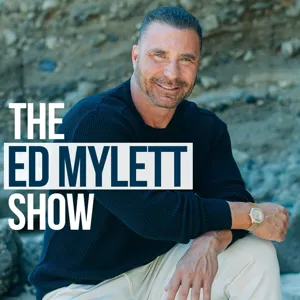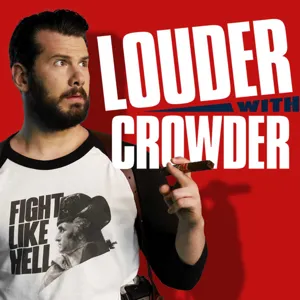Podcast Summary
Understanding the happiness of singles: Researchers are shifting focus from married individuals to singles to broaden understanding of overall well-being and happiness
More Americans than ever before are single, and many are content with their solo status. Despite societal stigmas, research is starting to show that happy singles exist, and understanding their well-being is crucial. While married individuals are often reported to be happier and healthier on average, recent studies challenge this notion. Researchers like Jeff McDonald, a professor of psychology at the University of Toronto, argue that focusing solely on married individuals overlooks the importance of understanding singlehood, which is a significant phase in many people's lives. By examining the experiences and factors that contribute to happiness in singlehood, researchers can broaden their understanding of overall well-being and happiness.
The Variability of Well-being in Singles and Couples: Some singles are happier than couples, and vice versa. Researchers study traits of happy singles, including good relationships with friends and family.
While being in a romantic relationship generally leads to higher well-being and happiness on average, there is significant variability within each group. Some single people are happier than those in relationships, and vice versa. Researchers are focusing on identifying common traits among happy singles, such as those who have never been married or never been in a romantic relationship, and those who have good relationships with friends and family. However, the experience of singlehood can vary greatly depending on individual circumstances, such as past relationship history. For instance, people who have been through a divorce may experience negative effects on their well-being. Ultimately, the people who thrive in singlehood are those who are good at building and maintaining relationships in general, regardless of the type. It's important to remember that relationships, while generally beneficial, can also be damaging for some individuals.
Being single and happy aren't mutually exclusive: Singles can have satisfying relationships and increase in contentment with being single as they age, but those who truly desire a partner may still feel unhappiness
Being single and being happy in a relationship are not mutually exclusive. People who are content being single are also capable of having intimate relationships, whether romantic or casual. In fact, research suggests that those who report higher sexual satisfaction while single are more likely to end up in committed relationships. Additionally, people's satisfaction with singlehood tends to increase around midlife, possibly due to a general increase in well-being and the fact that those who truly want a relationship may have already found one. However, for older singles who still desire a romantic partner, this desire also plays a role in their contentment with being single. Overall, the key is to focus on personal growth and self-acceptance before pursuing a romantic relationship.
Impact of romantic desire in older age on life satisfaction: Older women who let go of romantic desire or never had it report higher life satisfaction, while those who continue to yearn may experience lower satisfaction. Cultural norms and individual experiences play a role.
The desire for a romantic relationship in older age can impact one's life satisfaction. Older women who have let go of this desire or never had it in the first place tend to report higher life satisfaction. Conversely, those who continue to yearn for a romantic relationship may experience lower life satisfaction. This research, primarily conducted in the US and Europe, suggests that cultural norms around family and individualism could influence the experience of singlehood. For instance, in more collectivistic cultures where family plays a larger role, there might be additional pressure on singles to conform to societal expectations. Gender differences in the data have been equivocal, with no clear evidence that single men or women are happier on average. However, it's important to note that the content of individuals' experiences might differ beneath these averages. Further research is needed to explore these cultural and gender differences in greater depth.
Societal stereotypes and attachment theory impact happiness for single individuals: Anxiously attached individuals, who crave closeness, are less satisfied with singlehood and have lower overall life satisfaction. In contrast, avoidantly attached individuals, who value independence, are more content with being single.
There are societal stereotypes and expectations that differ between single women and single men. Women are often labeled negatively, such as "spinster," while there is no equivalent term for men. Attachment theory, which explains why some people are more comfortable with closeness than others, can help us understand these differences in happiness and satisfaction with singlehood. Anxiously attached individuals, who are needy and clingy, are less satisfied with being single and have lower overall life satisfaction. Conversely, avoidantly attached individuals, who value independence, are more content with being single. Research shows that anxiously attached individuals also tend to have lower relationship satisfaction when they do form relationships. Overall, societal stereotypes and individual attachment styles play a significant role in the happiness and satisfaction of single individuals.
Impact of attachment styles on life satisfaction: Avoidantly attached individuals may prefer being single but miss out on relationship benefits, and there's a tendency to stay in unsatisfying relationships due to evolutionary reasons
People's attachment styles, particularly for those who are avoidantly attached, can significantly impact their overall life satisfaction. Avoidantly attached individuals may prefer being single due to their preference for emotional distance, but they miss out on the benefits of intimate relationships. Furthermore, there's a tendency, called progression bias, for individuals to stay in relationships, even when they're not fulfilling, potentially due to evolutionary reasons. Our ancestors may have been biased towards forming relationships, even if they weren't perfect matches, to increase their chances of survival and passing on their genes.
Societal systems shape attitudes towards singlehood: Societal structures can create stigma and discrimination against singles, leading to negative consequences in various aspects of their lives, but also offer increasing independence. The debate continues on whether this stigma is necessary or harmful.
While human nature may incline us towards relationships, social and structural systems also play a significant role in shaping our attitudes towards singlehood. These systems can create stigma and discrimination against single people, leading to negative consequences in various aspects of their lives. The pandemic served as a reminder of the increasing independence made possible by societal structures, but it also highlighted the unfair stereotypes and barriers faced by single individuals. The ongoing debate is whether this societal stigma against singlehood is a necessary force for maintaining relationships or a harmful one for those who choose to live their best lives as singles.
The importance of social connection for those living alone during the pandemic: Despite societal changes, singlehood is a response to circumstances, and researchers are focusing on studying all aspects of single lives holistically.
The pandemic highlighted the importance of social connection and stimulation in our lives, particularly for those living alone. Research shows that people living with partners and children were the happiest during the pandemic, while those living alone faced greater challenges due to lack of stimulation and social interaction. As societal changes, such as rising housing costs, force people into shared living situations, the need for romantic relationships may decrease. However, it's important to remember that singlehood is not a moral choice but a response to societal circumstances. Researchers are now focusing on studying single people's lives holistically, as they found that non-romantic aspects of their lives, such as health and work, are often more important to them. Overall, the field of singlehood research is still wide open with many questions to explore.
Exploring the Role of Psychology in Mental Health and Well-Being: This episode highlights the importance of mental health, the impact of social media, benefits of mindfulness practices, and the role of therapy in addressing mental health concerns.
Key takeaway from this episode of Speaking of Psychology is the importance of mental health and the various ways psychology plays a role in our lives. We discussed the impact of social media on our well-being, the benefits of mindfulness practices, and the role of therapy in addressing mental health concerns. The guests shared their personal experiences and insights, offering valuable perspectives on these topics. Remember, it's okay to ask for help and prioritize your mental health. For more information and resources, visit www.speakingofpsychology.org or email speakingofpsychology@apa.org. Thank you for tuning in, and we look forward to bringing you more thought-provoking conversations in future episodes. Speaking of Psychology is produced by Lee Winerman, and our sound editor is Chris Kundian. For the American Psychological Association, I'm Kim Mills.






